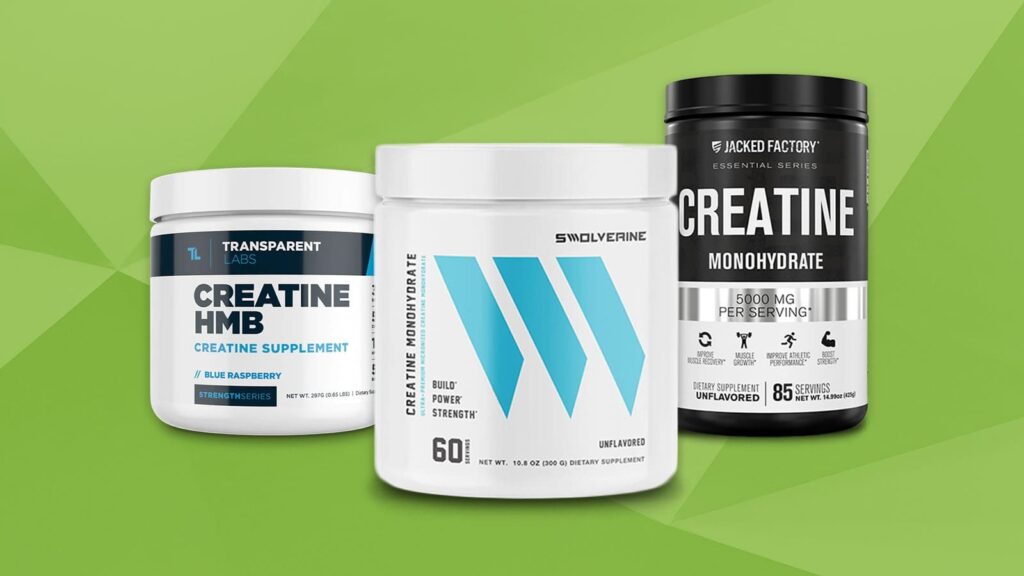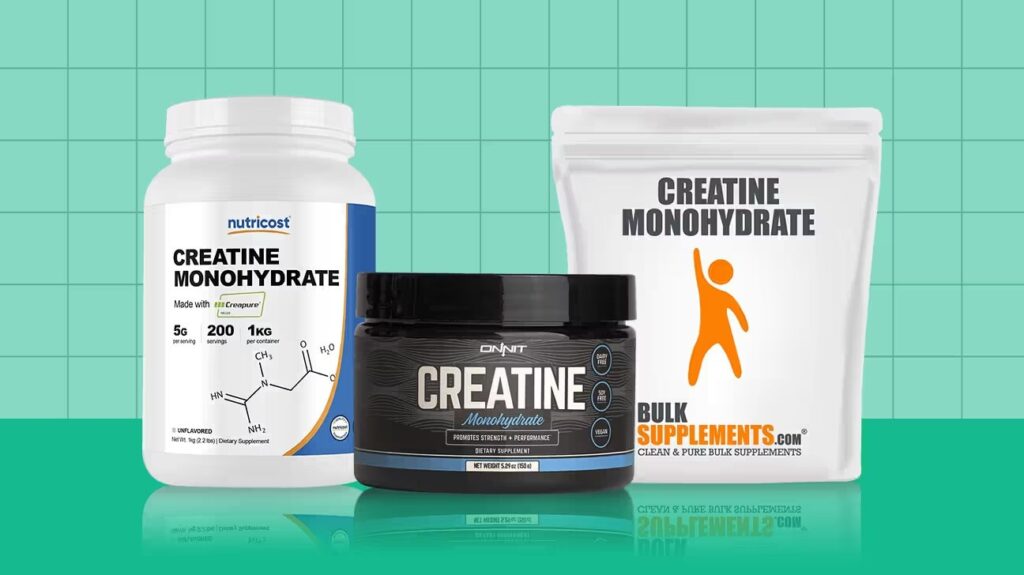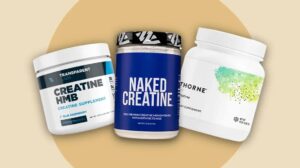If you’re wondering if creatine may help you lose weight, you’re not alone. With so many supplements entering the market, it’s critical to separate fact from fiction. Creatine, which has historically been connected with muscle growth and athletic performance, has recently aroused debate regarding its potential involvement in weight loss. In this comprehensive post, we will look at the science behind creatine, how it affects weight control, and how you may make an informed decision. Join us as we reveal the truth about creatine and weight loss.
Understanding Creatine: A Brief Overview
Small amounts of the naturally occurring substance creatine can be found in some meals and is also produced by the body. It is essential for the synthesis of adenosine triphosphate (ATP), the main source of energy for cells. This makes it especially advantageous for quick bursts of high-intensity exercise, like running and weightlifting.
Creatine Supplementation: Mechanism and Benefits
When taken as a supplement, creatine raises the muscles’ phosphocreatine reserves, enabling quick ATP regeneration during strenuous exercise. Increased muscular mass, strength, and power result from this. The following are some of the well-established advantages of using creatine supplements:
-
Improved Athletic Performance
It is commonly known that creatine can improve performance during brief, high-intensity workouts. It is frequently used by bodybuilders and athletes to boost their power and strength output.
-
Muscle Growth
Over time, muscle mass increases as a result of creatine’s promotion of muscle protein synthesis. It is therefore a well-liked supplement among people trying to gain and keep muscle.
-
Enhanced Recovery
People can train more efficiently by using creatine, which can help with quicker recovery following strenuous workouts by lowering inflammation and muscle damage.
The Connection Between Creatine and Weight Loss

Although creatine is mainly recognized for its ability to increase muscle mass and improve performance, a new study indicates that it might also help with weight management. The following are a few ways that creatine may affect weight loss:
-
Increase Muscle Mass and Metabolism
Because muscle tissue has a higher metabolic activity than fat tissue, it burns more calories when at rest. Creatine can raise your basal metabolic rate (BMR) and potentially result in more calories expended throughout the day by encouraging muscle growth.
-
Enhanced Workout Intensity
Because creatine makes it possible to work out harder, you may burn more calories while exercising. When paired with a balanced diet, this can help with overall weight loss.
-
Improved Recovery and Consistency:
Quick recovery times allow you to continue working out regularly without taking long breaks. Any weight reduction journey requires consistency, which creatine can help with by lessening fatigue and discomfort in the muscles.
Debunking Myths: Does Creatine Cause Weight Gain?
The possibility of gaining weight while using creatine is one frequent worry. Although taking supplements of creatine may cause a little rise in body weight, this is mostly because to the retention of water in the muscles. This is a transient retention of water and does not translate into weight gain. Indeed, many people notice that they appear thinner as their muscle mass grows.
Scientific Studies: Creatine and Weight Loss
Numerous investigations have examined the impact of creatine on weight control and body composition:
-
Study 1: Creatine and Fat Mass Reduction:
A study published in the Journal of Strength and Conditioning Research looked at the effects of creatine supplementation on body composition. The results showed that subjects who took creatine lost fat mass while increasing lean muscle mass.
-
Study 2: Creatine and Metabolic Rate:
An additional investigation looked at creatine’s impact on resting metabolic rate (RMR). Researchers discovered that people who took creatine supplements had greater resting metabolic rates (RMRs) than people who did not, which may indicate that these people burned more calories.
-
Study 3: Long-Term Effects of Creatine:
Creatine supplementation does not result in appreciable weight gain from fat, according to a thorough analysis of numerous trials. On the contrary, it promotes muscular growth and could improve total body composition.
Incorporating Creatine into Your Weight Loss Plan

It is crucial to include creatine in your weight reduction program carefully if you are thinking about doing so. Here are some pointers to get you going:
-
Choose the Right Form
Creatine monohydrate is the form of creatine that is most researched and used often. Its effectiveness in enhancing muscular strength, power, and overall athletic performance has been consistently proven. This type of creatine is popular among athletes and fitness enthusiasts due to its affordable pricing. Because of its proven benefits and safety record, creatine supplementation is the recommended option for individuals who are new to the supplementation process.
-
Follow Recommended Dosages
In terms of dosage, a standard plan begins with a loading phase designed to fully saturate your muscles with creatine. For the first five to seven days, you will need to take four dosages of 20 grams of creatine every day. You can switch to a maintenance dose of 3-5 grams per day after this initial period. On the other hand, some people can choose to begin using the maintenance dose of 3-5 grams per day right away and forego the loading phase. By reducing the possibility of gastrointestinal discomfort, such as cramping, this method can facilitate a more comfortable and seamless supplementation process.
-
Stay hydrated
It’s important to drink enough water since creatine causes muscle cells to retain more water. Try to be well-hydrated throughout the day to maintain proper muscular function and general hydration. Sufficient hydration not only maximizes the benefits of creatine but also helps sustain peak performance during exercise. Muscle cramps, exhaustion, and decreased performance can result from dehydration, so drink plenty of water regularly and keep a bottle close at hand.
-
Combined with a Balance Diet
A well-balanced diet should be the foundation of a supplemented diet, not its substitute. To support your fitness goals, concentrate on eating a range of healthy meals that are high in important nutrients. Include lean proteins to support muscle growth and repair, such as fish, poultry, and lentils. To promote general health, include a variety of healthy fats from foods like avocados, almonds, and olive oil. You can acquire the energy you need for your workouts from whole grains, fruits, and vegetables that contain carbohydrates. To achieve long-lasting weight loss, a well-rounded diet is essential; don’t rely just on supplements.
-
Maintain a Consistent Exercise Routine:
The best results from creatine come from combined use with regular exercise. Include both cardiovascular and strength training in your regimen to get the most out of it. Weightlifting, resistance band exercises, and bodyweight workouts are examples of strength training activities that help you develop and maintain muscle mass, which in turn increases your metabolism. Running, cycling, and swimming are examples of cardiovascular workouts that improve cardiovascular health and increase calorie expenditure. Maintaining a routine is essential. Try to get in at least 150 minutes of moderate-intensity or 75 minutes of high-intensity exercise every week, in addition to two or more days of muscle-building exercises.
Potential Side Effects and Considerations

While creatine is generally safe for most people, it’s important to be aware of potential side effects and considerations:
-
Kidney Health
Research indicates that creatine supplementation is safe for healthy people, despite concerns regarding creatine and renal function. However, before consuming creatine, people with pre-existing kidney issues should speak with a healthcare provider.
-
Caffeine Interaction
The efficiency of creatine may be hampered by high coffee dosages. To maximize the effects of creatine, think about reducing your caffeine intake if you’re a heavy user.
Conclusion
Although creatine isn’t a miracle cure for weight loss, it might be a useful addition to your fitness equipment. When paired with a healthy diet and regular exercise, creatine can improve weight loss attempts by boosting muscle growth, metabolism, and workout performance. Like any supplement, it’s important to handle creatine with awareness, taking into account your unique needs and goals.
Try creatine and track your results if you’re interested in seeing if it can help you lose weight. Recall that long-term weight loss is a process that takes commitment and perseverance. You may get a leaner, stronger, and healthier body with creatine if you use the appropriate strategy.
FAQs
Can creatine cause weight gain, and how does it affect weight loss?
A brief retention of water in the muscles due to creatine may result in a modest increase in body weight. On the other hand, it promotes enhanced metabolism and muscular growth, which help with fat loss and better body composition.
How should I take creatine for weight loss, and do I need to follow a loading phase?
You have two options: begin with 3-5 grams every day and work your way up to 20 grams per day for 5-7 days, or start with 3-5 grams per day right away. The decision comes down to comfort and personal preference, as both approaches are successful.







